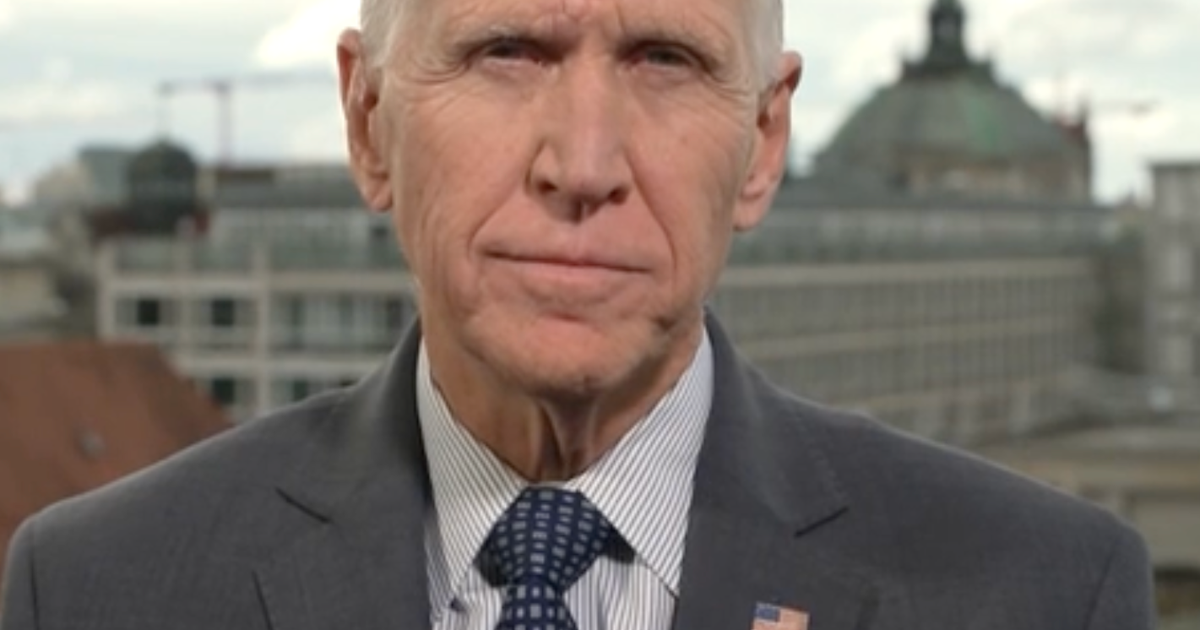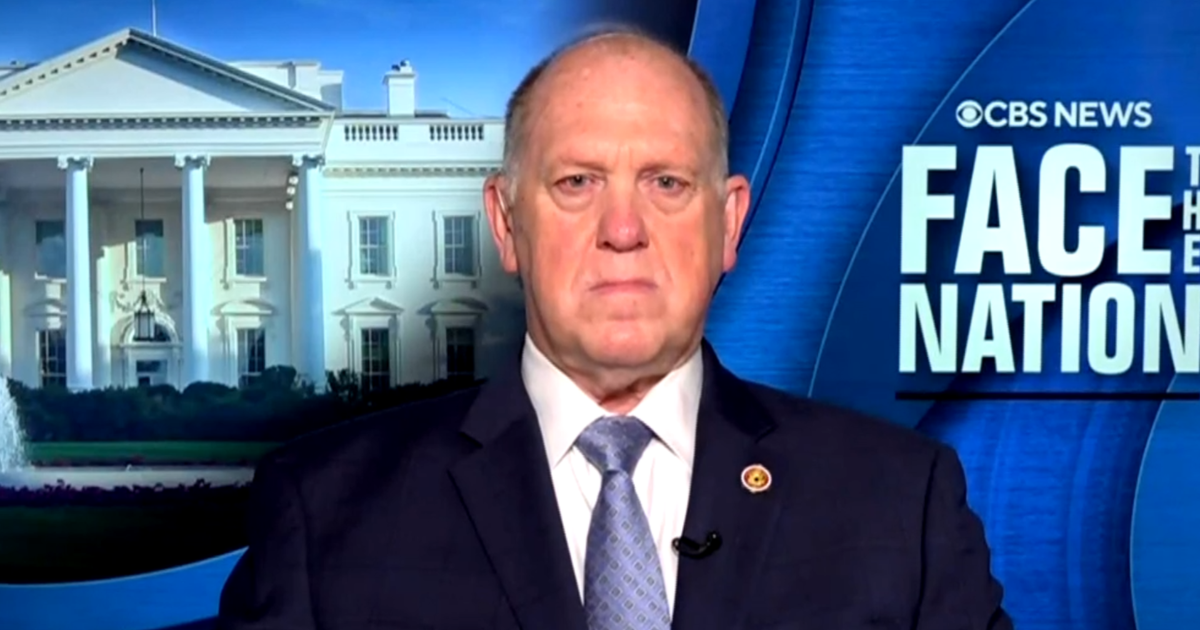Transcript: Mohamed El-Erian on "Face the Nation," March 13, 2022
The following is a transcript of an interview with Mohamed El-Erian, chief economic adviser to Allianz, that aired Sunday, March 13, 2022, on "Face the Nation."
MARGARET BRENNAN: We want to go now to the chief economic adviser to Allianz, and that's Mohamed El-Erian, who joins us this morning from Cambridge, England. Good morning to you.
EL-ERIAN: Good morning, Margaret.
MARGARET BRENNAN: In this country, we saw yet another high, a 40 year high in inflation. It's the Fed's job to control that, and the Fed chief has some big decisions this week. What are you expecting from?
EL-ERIAN: Well, he doesn't have an easy decision, as you said. Inflation is high and will go higher because of what's happening in Ukraine. And basically, he's got to make a choice, hit the brakes, regain credibility, but risk a recession or tap the brakes, and we have an inflation problem going into next year. We are here because the Fed is very late and has no good policy options available anymore.
MARGARET BRENNAN: No good policy options. You're expecting what kind of rate hike and what is the risk of recession at this point? Goldman Sachs. I know they upped their forecast to at least a 20 percent chance of a recession in the United States.
EL-ERIAN: Yes, and they are thinking that we're going to get seven hikes this year. I don't think we'll get seven hikes. I don't think this economy can support seven hikes, and if we do get seven hikes, we will go into recession. That's the cost of being late. I suspect that what we'll hear on Wednesday, Margaret, is a 25 basis point rate hike. We will hear that more on the way, and we will hear that they will all also contract what has become a nine trillion balance sheet. We are in this absurd situation that last week, when we got the 7.9 percent inflation rate, the Fed was still putting liquidity into this economy. That just gives you a feel for how misaligned policy has been.
MARGARET BRENNAN: Well, Mohammed, you've been a critic for some time. You know, the White House this week is calling inflation "a Putin price hike." But you were on this program back in December talking about how serious inflation was. Where does the responsibility for this lie exactly?
EL-ERIAN: So it lies in the circumstances, it lies in the Fed being late, and mischaracterizing inflation. Til' the end of November they were calling it transitory, but also to be fair to the administration, there- there will be a Putin inflation component. I estimate that at 7.9 percent, we will probably get very close or above 10 percent before we come down. And that difference will be all because of the disruption that Putin's war imply for commodity prices, supply chains and shipments.
MARGARET BRENNAN: Double digit inflation. When do you think we will see that? I mean, people are really feeling it now.
EL-ERIAN: Yeah, if it happens, it will happen in the summer and people will feel it, the worst thing for us would be not only do we feel the higher inflation, but we also feel income losses. That's why it's critical to avoid a recession. We-we can't avoid stagflation–lower growth, higher prices, but we certainly can avoid a recession and we can bounce back quickly.
MARGARET BRENNAN: As we said–I mean–it is the Fed's job to control inflation. The White House is saying both that it is not their fault, but that they're doing something about it at the same time. Are there political measures here that actually can be taken?
EL-ERIAN: There are and they're stuck in Congress, you can do more to increase labor force participation so that wage pressure comes down. That's about childcare, that's about easing people's way back into the labor force. You can do more to enhance productivity, and you can do more to supply–to remove supply bottlenecks. The administration has policies. Lots of them are stuck in Congress right now.
MARGARET BRENNAN: You know, when you talk about supply chain bottlenecks, we have to remember we are coming out of this global pandemic. And just overnight, we're seeing headlines that local authorities in Shenzhen, China, have imposed a new lockdown there due to a COVID outbreak. This is a major manufacturing hub for the rest of the world. I don't want to overstate this, but how concerned should we be about this as a factor?
EL-ERIAN: We should because China is sticking to its zero COVID [transcription corrected] policy at a time when Omicron makes that policy very hard to implement. So they will have sequential lockdowns that will have spillovers to us. You know, we can be a good house, but we're living right now in a really tough neighborhood. And that's why it's really important to respond quickly. We can't fall behind again on policies.
MARGARET BRENNAN: –again on policies. OK, so that's up to the Fed. But when we look ahead for the year, the Treasury secretary is already saying we should expect 12 months of inflation. When can we play catch up there and bring prices back down? Where are these tools really out of the hands of policymakers at this point?
EL-ERIAN: So Secretary Yellen is correct. We, unfortunately, are going to have at least 12 months of uncomfortable inflation, something that we haven't had since the 70s and 80s, and that's going to be especially problematic for the more vulnerable segments of our society. It hits food and gas particularly hot. As to what we can do, we have to be really careful that we don't get another wave of inflation due to what economists call the anchored inflation expectations. Basically, Margaret, it's a simple story. Right now, I will go in. I-being the American worker-and asked for compensation for past inflation. If I don't have faith in my policymakers, I will also ask for compensation for future inflation. I want to protect myself, preemptively, that happens, then we have that awful price-wage-price-cycle.
MARGARET BRENNAN: Mohamed El-Erian, thank you very much for your analysis this morning, and we will track what happens in the coming days. We will be back in a moment.



